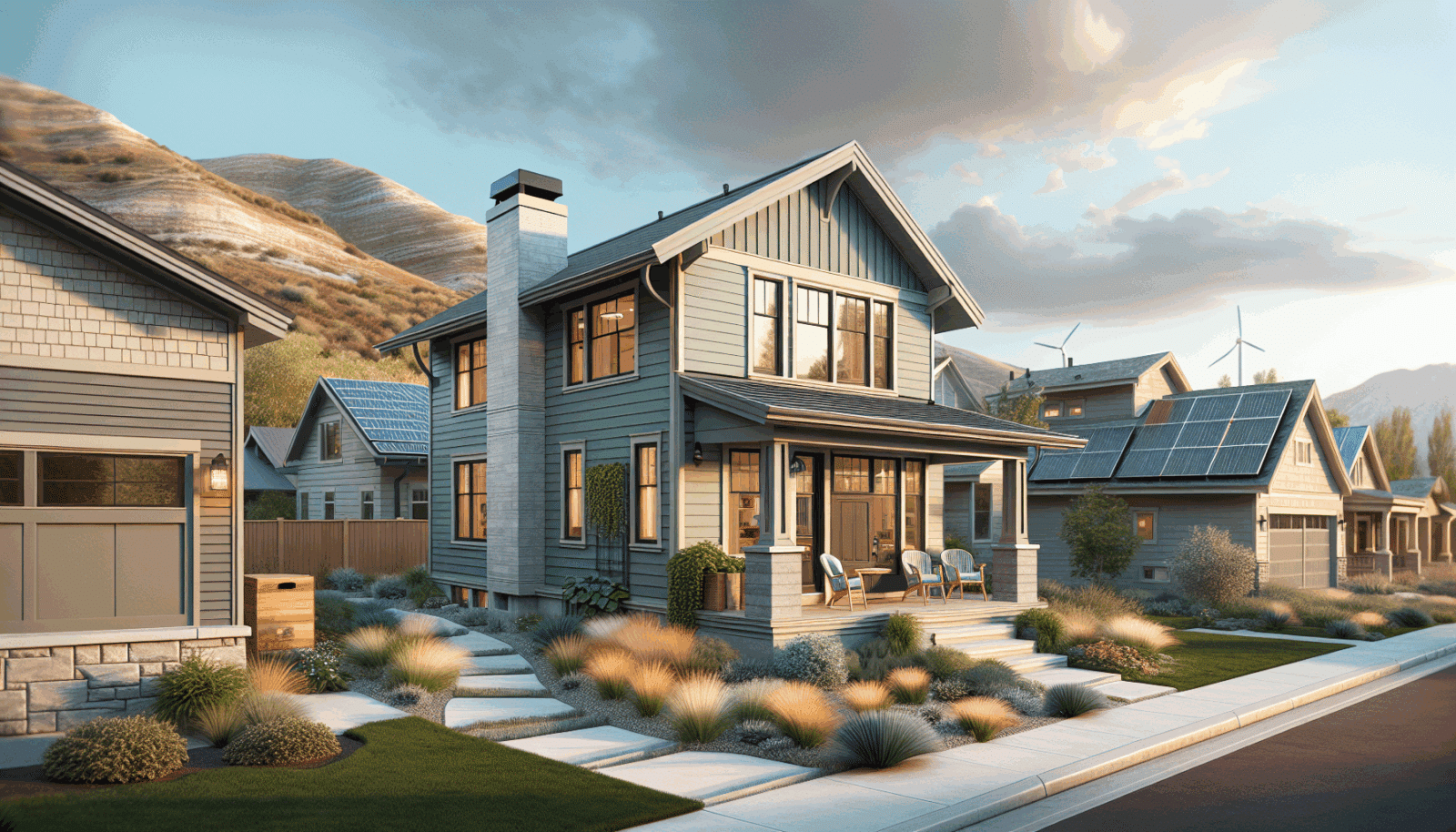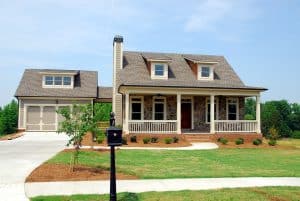Eco-friendly Vinyl Siding is often surrounded by myths that can leave homeowners scratching their heads. Are we really helping the environment by choosing vinyl, or is it all just marketing? Here at Utah Siding & Exteriors, we understand the confusion you may have. We’ve crafted this article to clear up misconceptions and help you make informed decisions about sustainable siding options.
Understanding Vinyl Siding
Vinyl siding has been a popular choice for homeowners over the years. It’s affordable and versatile, but some still question its eco-friendliness. Many traditional materials can drain resources; however, our eco-friendly variety aims to reduce that impact. By reading on, you’ll discover how this siding can play a pivotal role in sustainable home building. Plus, you might realize that eco-friendly and economical can indeed go hand-in-hand.
As construction innovations evolve, it becomes important to consider environmentally responsible options. Moreover, vinyl siding has come a long way, boasting recycled content and energy efficiency. So, where does it stand on the green scale? We’ll peel back the layers of this modern material, making you more knowledgeable about what’s protecting your home.
The Myth Busting Begins
The word “vinyl” often raises eyebrows in eco-conscious circles. But, it’s not just about what vinyl is made from. The manufacturing process, durability, and recyclability contribute to its green status. Moreover, with technological advances, production of vinyl siding has become more energy-efficient. But myths can linger, and we want to address those head-on.
One major myth is that vinyl siding isn’t environmentally friendly at all. However, improvements over the years have significantly reduced its carbon footprint. With increasing pressure for sustainable practices, manufacturers have embraced changes in recycling and energy use.
Sustainability in Manufacturing
Eco-friendly vinyl siding is not a myth—it’s a fact born from carefully considered manufacturing processes. The production of vinyl for siding utilizes fewer resources than you might imagine, and it’s not as energy-intensive as other materials.
By implementing cleaner processes, manufacturers manage to provide quality products with a reduced environmental impact. Our eco-friendly siding comes from manufacturers dedicated to greener practices. This includes using less energy and incorporating recycled materials, contributing to a more sustainable environment.
Is It Truly Green?
When exploring if siding can claim to be green, it’s necessary to look at its entire lifecycle. Green materials don’t just come from sustainable sources; they continue to offer benefits throughout their use. Vinyl siding scores well in longevity, requiring fewer replacements or repairs.
Durability is a significant factor in assessing a material’s sustainability. Because it lasts longer, vinyl siding reduces the need for new resources over time. Furthermore, sustainable practices can turn old vinyl siding into new products, lessening its environmental footprint.
Energy Efficiency
Energy efficiency is a pivotal consideration when selecting siding. Eco-friendly vinyl siding can insulate your home better than traditional materials. This means your home stays warm in winter and cool in summer without overburdening heating and cooling systems.
With improved thermal performance, energy-efficient vinyl siding helps reduce utility bills. The advanced design works in harmony with your home’s HVAC system, enhancing overall effectiveness. Additionally, less energy consumption translates to fewer carbon emissions, underscoring its eco-friendly benefits.
Enhanced Longevity
One of the most attractive attributes of eco-friendly vinyl siding is its longevity. Longlasting materials are environmentally beneficial as they require fewer replacements. This is why many homeowners gravitate toward vinyl—it simply outlasts several alternatives.
The durability ensures that you won’t be faced with frequent repairs or replacements. Our siding retains its appearance against weather elements and doesn’t require extensive upkeep. Its reduced maintenance demands free-up your time and resources, so you can focus on other areas of eco-improvement.
The Recyclability Factor
Recycling plays a pivotal role in closing the loop on production waste. With vinyl siding, it’s not just a possibility—it’s a reality. Many might not be aware that this siding is recyclable.
Engaging in recycling programs can significantly lower the waste associated with home renovations. Thanks to advancements in recycling technologies, old or leftover vinyl siding materials can be repurposed efficiently. Utah Siding & Exteriors ensures that all our waste materials are directed toward recycling, supporting the eco-cycle.
Cost vs. Eco-Friendly Benefits
Eco-friendly often translates to increased costs. Yet, vinyl siding is an exception, offering a cost-effective approach while maintaining green credentials. We understand that budget considerations play a crucial role in your decision.
This siding’s upfront affordability doesn’t compromise environmental benefits. In fact, it offers long-term savings on energy costs and maintenance. Home improvement that respects your wallet and our planet—what better combination?
Installation and Impact
The right installation is crucial to maximizing the benefits of eco-friendly siding. If done properly, it can enhance the siding’s performance. Our professional team ensures that each installation contributes positively to your home’s energy efficiency.
Our experts understand the nuances of vinyl Siding Installation. We apply techniques that further improve energy performance and lifespan, reducing waste in the process. Rely on us to make your eco-friendly ambitions a reality.
Key Benefits of Eco-Friendly Vinyl Siding
- Cost-Effectiveness: This siding option remains affordable, delivering high value over time. It’s a sustainable choice without breaking the bank.
- Energy Efficiency: Enhanced insulation properties lead to substantial energy savings. Lower utility bills and reduced carbon emissions become a win-win.
- Longevity: Durable and resilient against weather, eco-friendly vinyl siding lasts for decades. Less frequent replacements means a smaller environmental impact.
- Recyclability: The ability to recycle this siding makes it a more sustainable option. Our commitment ensures that materials are repurposed efficiently.
- Low Maintenance: Requiring minimal upkeep, vinyl siding saves resources and time. It maintains its appeal with less effort, enhancing its eco-value.
Conclusion
Now that you understand the facts, it’s your turn to take the next step. Contact us at 801-509-9241 or Request a Free Quote to make the switch to eco-friendly vinyl siding today.




